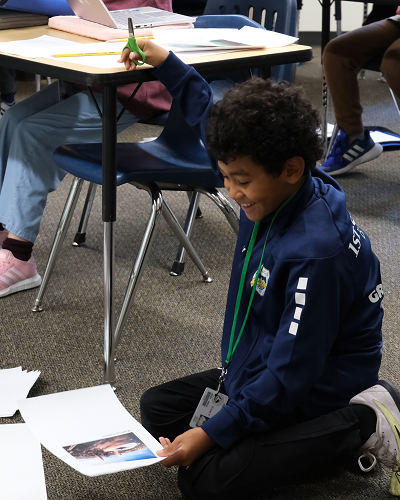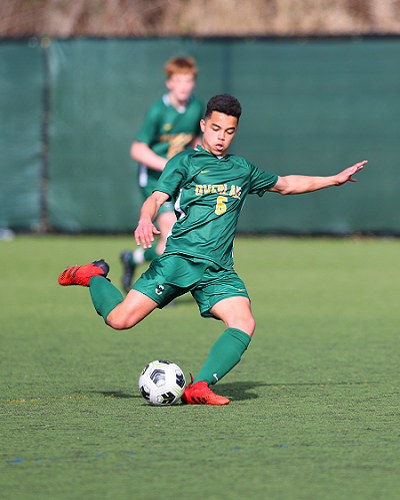Learning from each other

Overlake brings together students from all backgrounds and religions. On Tuesday, the freshmen class got the opportunity to hear from seven upper classmen about the religions they practice every day.
“We do a lot in class on the history of the religions, it’s important context for understanding the present world. But it can be easy to forget the way this lives and breathes in people’s day to day lives in the world and even in the lives of our students,” says Amanda Jones, Social Studies Faculty.
As a part of the Global Religions unit in ninth grade World History, students take a historical look at five religions: Christianity, Judaism, Islam, Hinduism, and Buddhism. By bringing students together to talk about their experiences, Jones hopes to make the things they study in class more personal and vibrant, not just something they read in a history book.
The panelists introduced themselves and talked about how Overlake impacts their religious experience, their favorite things about their religion, and common misconceptions they would like to dispel.
Students from several religious backgrounds described what it’s like adhering to their chosen dietary choices at Overlake. Most shared that Overlake did a pretty good job of providing food options that allowed them to partake in most meals.
Those whose religion includes fasting described the challenges they can face during those times. In particular, the month of Ramadan for Muslim students. They spoke candidly about the experience saying that it was hard sometimes to balance their priorities. Junior Xainab K. noted that she loves to play Ultimate Frisbee in the spring but that comes with some tough choices, “I can run around in seventy degree weather without drinking water or I can miss practice for a month. Most of the time I miss practice, which really sucks. I really like playing Ultimate. But I also don’t want to pass out during my finals.”
However, in the midst of those choices there is great opportunity for growth. Junior Musab C. says, “you grow as a person (while fasting), you gain self-control and mental discipline.”
While every student has a different daily experience with their faith, there are common threads. All students shared how much they love each of their faith communities and how encouraging it is to gather in their synagogues, churches, mosques, or other places of worship to be around people who share their beliefs no matter what else is going on in life.
“I can be at peace with the world no matter how crazy it is. When I’m super anxious or when something crazy is going on, I know that God had a plan for us and it will be ok,” shares Angela L. (’22).
The panelists closed by encouraging students to keep an open mind as they interact with their peers. “I hope students begin to cherish the value of listening to stories. There is something so beautifully human in the learning that can be done by engaging with people who live diverse lives, indulge in diverse cultures and traditions, and practice diverse faiths and philosophies,” says Riya S. (’22).
More than anything, all students expressed the importance of not stereotyping a religion. Junior Ilanit R. shared, “I wanted to share a Jewish perspective and wanted the 9th graders to hear from me, not just read about what my religion entails. I wanted them to hear from my personal experiences.”
“In many ways, the lessons found through these interactions surpass anything a textbook can teach,” Riya S. (‘22) says. Jones agrees wholeheartedly with that sentiment, “hearing from a student is certainly a different perspective that hearing from a teacher.”


